Iran Promotes Professors Who Encourage Childbearing
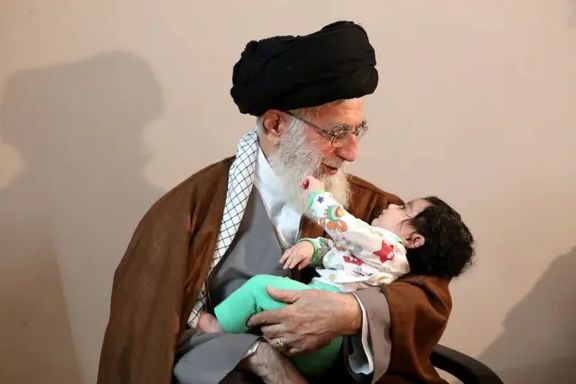
University professors who encourage their students to have children, are set to be promoted, according to Iran's ministry of science.

University professors who encourage their students to have children, are set to be promoted, according to Iran's ministry of science.
A new directive obliges universities to support “pregnant mothers” or those students who already have children. All universities and colleges in Iran are obliged to run majors like ‘home and family management’ for female students and content against childbearing is banned.
In spite of the regime's efforts to encourage people to have more children, it has failed to achieve its intended results due to the dire economic situation.
As it aims to raise childbirth rates, the Islamic Republic recently adopted strict abortion regulations. The childbirth rate in Iran has been steadily declining over the past few decades. In the early 1980s, the fertility rate in Iran was as high as 7 children per woman. This rate has since dropped to 1.9 per woman in 2019.
The health ministry claims more than 100 cases of illegal abortion have been sent to the judicial authorities and the doctors' offices are sealed.
The ban on abortion in Iran has made women go underground and often unsanitary centers are used to terminate pregnancies causing the death of many and lifetime complications in others. Each year, between 300,000 and 600,000 abortions are performed in the country. In 2017, Iran's maternal mortality ratio was 16 deaths per 100,000 live births.
Iran’s Supreme Leader Ali Khamenei believes efforts to increase the country's population are among the most urgent duties and essential policies of the Islamic Republic as one of the Shia countries in the Muslim world.
Parliament passed legislation last year to outlaw tubectomy, vasectomy, and the free dispensation of contraceptives other than where pregnancy would threaten a woman's health. Medical experts have warned that the legislation would increase sexually transmitted diseases by restricting access to condoms.
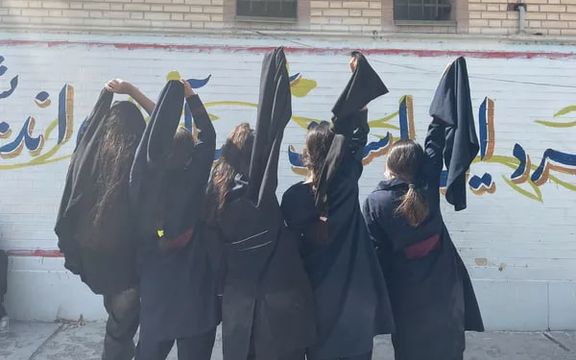
In its latest report, Human Rights Watch claims Iranian security forces have systematically murdered, tortured, and sexually assaulted children during the nationwide protests.
The rights group claims judges have barred children's families from hiring lawyers of their choice to defend them, and found Iranian authorities have arrested, interrogated, and prosecuted children in violation of legal safeguards.
Released Tuesday, the report details eleven cases of child abuse between September 2022 and February 2023. Children have been arrested and detained by security forces without informing their families.
In some cases, the students released from detention are barred from returning to school, or their families' social welfare has been cut off, forcing them to go to work.
Tara Sepehri Far, a senior Iran researcher at Human Rights Watch said: “Over the past seven months, the authorities have not hesitated to extend the coercive power of the state to silence even children.”
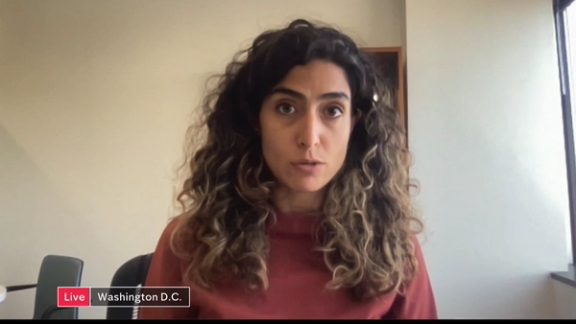
Detailing first hand accounts, one high school student said security forces set her clothing on fire, beat and whipped her, and pushed her onto a lit gas range during arrest. Another 17-year-old boy spoke of being brutally beaten and sexually assaulted.
According to the report, there have been numerous instances of torture, including the forcing of needles under a young boy's nails, the torture of two children to obtain information about their family’s whereabouts, and the torture of a 16-year-old who attempted suicide twice after being electrocuted, beaten, and sexually assaulted by interrogators.
Children injured by security forces have not been provided with medical care and their family members have been threatened to keep silent about the abuses.
Several rights groups, including Human Rights Watch, Amnesty International, and others, have documented widespread and violent repression of protests by the Iranian government, including the killing of children.
So far, well over 500 protesters -- including at least 69 children -- have been killed in regime crackdowns since the protests began in September, according to the Human Rights Activists' News Agency (HRANA).
Human Rights Watch called on the United Nations to act. In a statement, it said: “The United Nations Fact-Finding Mission on Iran should investigate these grave abuses against children as part of its broader reporting on the Iranian government’s serial human rights violations.”
Iranian law forbids prosecution and interrogation of children by anyone other than specialized children's prosecutors and youth courts. However, according to the report, a revolutionary court judge, a cleric, was co-appointed as a youth justice judge in one case involving 16 defendants, including three children.
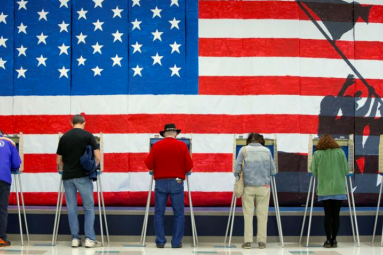
Iranian hackers gained access to a US government website set to report the 2020 elections results, according to US military officials.
The revelation was made by Major General William Hartman, head of US Cyber Command’s Cyber National Mission Force, who spoke for the first time of the incident, one of multiple attacks from foreign hackers during the presidential elections.
Speaking at the RSA cybersecurity conference in San Francisco, Hartman spoke of public concern that hackers may have rendered the website for displaying results unreachable or posted fake results, shaking public confidence.
However, he claimed that the Iranian group, known as Pioneer Kitten, was removed from the network before any damage was done to affect voting.
Hartman said the Iranian group was one of multiple foreign groups which had tried to disrupt the 2020 elections. In the same year, Iranian hackers faked emails supposedly from the militant far-right group, The Proud Boys, in order to threaten voters.
Six Iranians and a company called Emennet Pasargad were sanctioned by the United States in 2021 for interfering with the 2020 presidential election following the admission of the Biden administration that both Iran and Russia had interfered with the 2020 US presidential elections.
At the time, Alireza Miryousfi, the spokesperson of Iran's mission to the United Nations in New York, claimed on his Twitter page that "unlike America, Iran does not interfere in the elections of other countries."
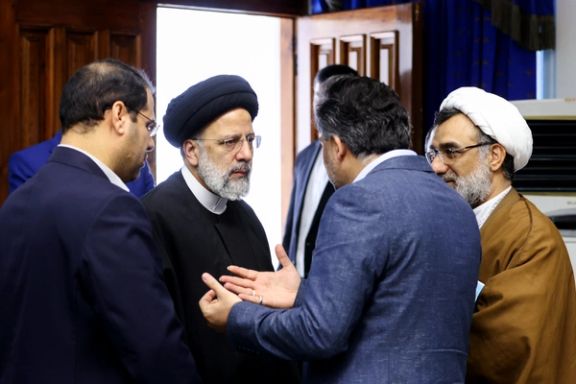
An Iranian lawmaker says the recent changes in the Raisi administration will not lead to any positive result as the president has not changed his approach.
Gholamreza Nouri Ghezeljeh added in an interview with Khabar Online in Tehran that although the highlight of the reshuffling was the removal of Agriculture Minister Javad Sadatinejad, several other ministers who needed to be replaced are still in the government because of problems in the dynamics between the parliament and the government.
Apart from changing some cabinet ministers, President Ebrahim Raisi also needs to remove some of the local officials and replace them with efficient executives, the lawmaker said. He charged that inefficiency is a shared characteristic by the parliament and the government – both dominated by hardliners loyal to Supreme Leader Ali Khamenei.
Ghezeljeh further added that the administration has a limited vision marked by factional interests, which prevents it from seeing the bigger picture and realizing the gravity of Iran's problems.
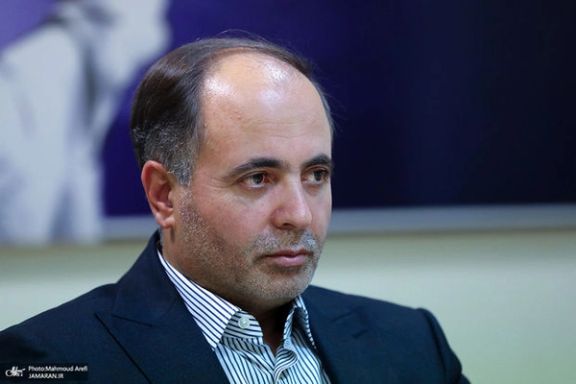
Ghezeljeh pointed out that there are many capable political figures within the conservative camp, but the government has limited its choices to a few individuals. He insisted that the country's executive management has many problems and change is badly needed in the cabinet.
Apart from the economic crisis that is the government's biggest problem, the Raisi administration is facing another major issue which is holding parliamentary elections next March while ensuring a good turnout. Media reports and opinions say voters are deeply disappointed with the regime’s engineered elections and might see no point in turning out to vote.
Although Iranian media have interpreted a statement by Supreme Leader Ali Khamenei about the need for cooperation among the heads of the three branches of the government as an order to stop the impeachment motion to replace Industry Minister Reza Fatemi Amin, some of the members of the parliament have told Rouydad24 website that the impeachment will go ahead as planned.
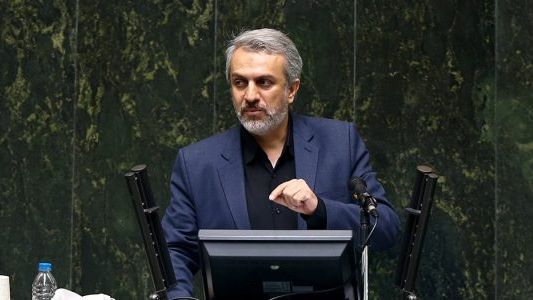
The impeachment was called for by at least 40 lawmakers. Although lawmaker Kamal Hosseinpour told reporters that the motion has been stopped, others including Lotfollah Siahkali insist that the motion will go ahead, while 15 of those who had signed the motion have taken back their support for the impeachment.
Meanwhile, another lawmaker, Ahmad Rasoulijead told Rouiydad24 that according to regulations, lawmakers cannot take back their signature once an impeachment motion is handed over to the presidium. In another development as the spokesman for the Ministry of Industry has charged that some lawmakers had personal demands from the minister, Rasoulinejad called on Fatemi Amin to name those lawmakers.
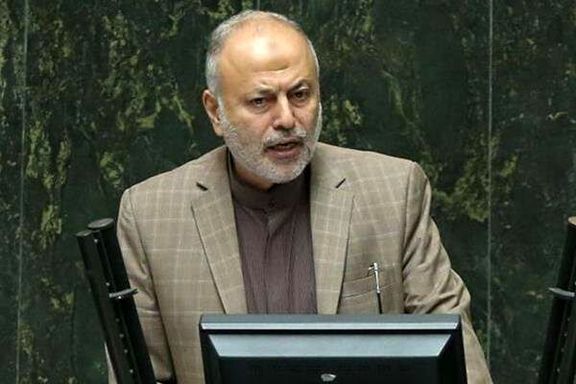
Criticism of the government among the members of the parliament is not simply about impeachments and the ministers of Industry and agriculture. Jalal Mahmoudzadeh has harshly criticized the performance of Foreign Minister Hossein Amir-Abdollahian and said with a minister like him, “we cannot maintain ties even with small countries” that have less than one million population. He also criticized the Raisi administration for dividing the nation as insiders and outsiders, with regime insiders winning the lion's share of all the privileges the government can offer.
Meanwhile, mysteriously a two-year old video of former president Mahmoud Ahmadinejad emerged last week in which he criticizes compulsory hijab. He also criticizes hardliners who charged unveiled women advocate nudity and called for respect for women's choice of what the wear.
However, many social media users have dismissed Ahmadinejad's comment as one of his tactics to grab attention, citing his policies during his presidency. Although Ahmadinejad had since 2005 spoken in support of young Iranians choice of lifestyle and dress code, he never stopped hardliners and vigilante groups from attacking women when he was president.
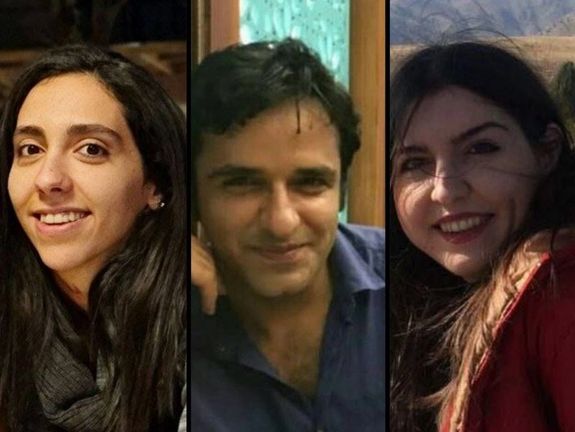
Three student activists in Iran have been summoned and indicted after protesting the serial poisoning of schoolgirls across the country.
Zia Nabavi, a former political prisoner, and student activist who was summoned to the Evin court together with two other activists, Fereshteh Tousi and Hasti Amiri, announced Monday that they have been accused of "propaganda against the state”.
The students from Tehran Allameh University held a gathering on March 7 to protest against the chemical attacks on students which began on November 30 in Qom.
Close to 300 schools and thousands of students have been targeted by chemical attacks with as yet, no clear answers from the government and no convictions made.
Nabavi is no stranger to the brutal regime’s crackdowns, having previously served nine years of a 10-year sentence on charges of "creating unease in the public mind" before being released in February 2018.
The attacks have mostly affected girls’ schools to quash the wave of anti-regime unrest which followed the death in custody of Mahsa Amini, with women leading the Woman, Life, Freedom revolutionary movement and rejecting the mandatory hijab.
Hundreds of girls have since been hospitalized with symptoms including respiratory distress, numbness in their limbs, heart palpitations, headaches, nausea, and vomiting.
Ordinary Iranians have been suspicious of the involvement of the regime itself, or religious extremists protected by the regime, calling the attacks “state terrorism,” although the regime has denied responsibility and even staged arrests of suspects after widespread protests.
Popular belief is that such large-scale and coordinated attacks cannot happen without the green light of regime authorities.
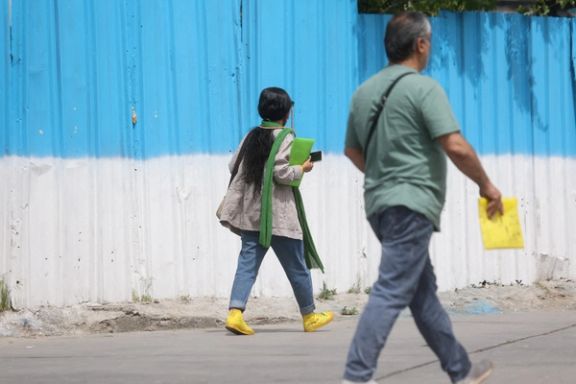
While thousands of women across Iran no longer wear the hijab, some regime officials are still in a state of denial and call for strict rules to control women.
In an interview with the IRGC-linked Fars news agency, Ali Khanmohammadi, the spokesman for the Headquarters To Promote Virtues and Prohibit Vice, the jargon for the morality police, called hijab defiance "a worrying situation and an onslaught on Islamic rules." He called on government institutions, meaning the police and the IRGC, to stop the behavior.
Khanmohammadi further warned that if the compulsory hijab rules are undermined, soon respect for other laws will also disappear.
The clerical regime has made hijab an existential issue for itself, trying to enforce it almost at any cost, including running the risk of renewed protests.

Former Deputy Judiciary Chief Mohammad Javad Larijani said recently that "the presence of a few unveiled women is not the social reality in Iran." Meanwhile he called the behavior of women who remove their headscarves "sedition," an offence that entails punishments as harsh as the death sentence in an Islamic society.
On the other hand, a prominent reformist cleric told Rouiydad24 website that the country's officials have given up dealing with major problems and all they do is intervention in the people's lifestyle and invading their privacy.
This comes while ultraconservative lawmaker Javad Karimi Qoddusi said on Sunday, that forceful methods that the morality police uses no longer work in Iran because people have become emboldened because of recent protests.
Critics say that some clerics including the Friday Imam of Qeshm island have gone out of their way and shut down people's shops for allowing unveiled women to shop. He said this is strictly against the religion and the law. He characterized such behavior as radical and a disgrace to the religion.
A few clerics have told the media that trying to force people to accept religious rules will discourage even the pious from following the religion. They warn that radical behaviors against unveiled women can lead to public insecurity while the government's main responsibility is to keep society and people secure.
Although many Iranians have seen videos that show the Friday Imam of Qeshm shutting down shops and harassing shopkeepers and shoppers in the island's malls, Gholamreza Hajebi has denied doing what is seen in videos, and accused his critics of distorting reality.
Iranian lawyer Nemat Ahmadi has likened the cleric's behavior of medieval Muslim rulers who did not have any respect for justice and punished whoever they did not like on the spot without asking questions first. He added that the least the Friday Imam of Qeshm can be charged with is undermining the principle of separation of the executive, legislative and judiciary bodies. However, the cleric cannot be associated with any one of the three bodies of the government.

Meanwhile, Iran's Supreme Leader Ali Khamenei has spoken differently about the government's reaction to the resistance against hijab in his speeches. While at times insisting on the enforcement of hijab, at other times he has said that even those who do not cover their hair are his daughters. However, security forces and their vigilante agents are under Khamenei’s control.
While many have warned that strict measures against women might lead to confrontation between various groups, in his latest Eid al-Fitr sermon on Saturday, Khamenei advised government officials to avoid creating confrontations between citizens.
Some have interpreted this as Khamenei’s signal to relax hijab rule, but so far all the signs point at the opposite direction.